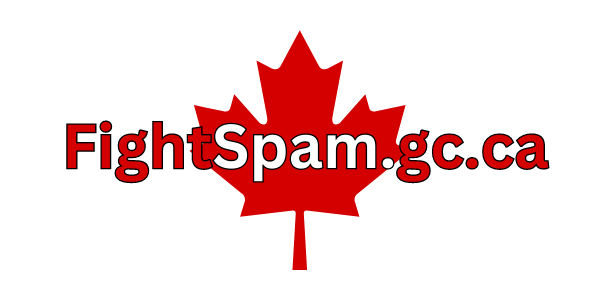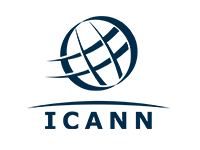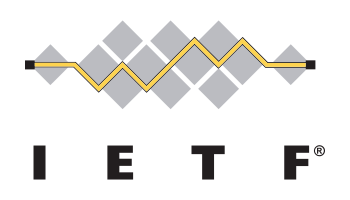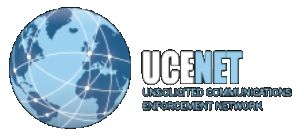2003 was the year of CAN-SPAM, AMEY (AOL, Earthlink, Microsoft & Yahoo!) legal initiatives, the FTC Spam Conference, Scott Richter being sued for spamming, and the Sobig and Blaster viruses.
January 2003
Ferris Research notes that spam costs U.S. corporations $8.9 billion per year
SQL Slammer virus released, infects 75,000 victims within minutes.
A Harris Interactive poll of 2,221 people indicate that at least 70% favour a government ban on spam
Sobig variant A released into the wild. the worst is yet to come.
Turing tests, in the form of CAPTCHAs, deployed. The blind are annoyed.
The first annual spam conference at MIT takes place. Attendee notes: "I think we need legislation protecting good faith efforts to stop spam" – Joshua Goodman, a Microsoft researcher
AT&T invokes rDNS requirement for inbound email in attempt to block spam, after 24 hours of high false positives, backs off the rule
In a ruling in the New York state attorney general Spitzer vs. Monsterhut case Justice Lottie E. Wilkins of the New York Supreme Court in Manhattan ordered Monsterhut Inc. and its executives to stop committing "fraudulent, deceptive and illegal acts".
Verisign company Network Solutions mails its customer list to a 'few thousand' of its customers.
The Direct Marketing Association sues the U.S. government to prevent the creation of an opt-out 'do not email' list
February 2003
American states Colorado and Missouri consider 'do not email' lists
A Public Opinion Strategies poll indicates that 90% of Americans polled support legislation "that would require warning labels on sexually explicit or pornographic spam and establish criminal penalties for spam that contains misleading information about the identity of the sender".
Microsoft files several 'john doe' lawsuits against Hotmail dictionary attacker spammers, indicates they will file three more similar lawsuits.
Barry Shein, president of the Boston-area ISP The World suggests legalizing spam charging spammers for its distribution. Bill Gates eventually floats the same idea a year later, which he calls Penny Black. Neither initiative go anywhere.
Microsoft attempts to dilute Washington state law against spam.
AOL & Microsoft support federal legislation against spam.
March 2003
The Internet Research Task Force (IRTF) convenes the Anti-Spam Research Group (ASRG).
AOL blocks 1 Billion spam in a 24 hour period.
Utah court dismisses the Terry Gillman vs. Sprint Communications class-action lawsuit. Gillman had signed up for 3rd party offers on a website, who sold his address to Sprint.
Hotmail limits the number of email users can send to 100, down from 500 per day
The United Kingdom considers an anti-spam law. The government takes in consultations from industry.
Salon features a day in the life of a spam fighter, Suresh Ramasubramanian
Japanese mobile phone carrier DoCoMo wins $54,000 USD against mobile phone spammers. The Internet does not record who lost the money, or the case.
April 2004
SEC sues Jonathan Randall Curshen for pump & dump using spam
Burns and Wyden reintroduce CAN-SPAM anti-spam legislation in the American senate
AOL files first suit against spammers since January 2001 against Michael Levesque and George A. Moore Jr. CAUCE makes note of the need for federal legislation.
Symantec files suit against Maryland Internet Marketing, George "Dr. Fatburn" Moore and John Smitherine
FTC files against Brian Westby after having received 46,000 complaints, for failing to honor an unsubscribe request.
Danish company Fonn Danmark found guilty of violating Denmark anti-spam law , fined $2,000
Australia makes note of intentions to introduce anti-spam legislation
NetGlobalMarketing CEO (and former Geraldo Rivera producer) Alyx Sachs, now a spammer, interviewed in the New York Times.
Server Beach disconnects 89 Web sites operated by US Moneywerx, a spammer, based upon information from SPEWS.org. NetGlobalMarketing was a client of Moneywerx.
Virginia introduces a statute making spam that involves fraud a felony
Senator Charles Schumer introduces legislation in American Senate, forges alliances with conservatives, including 'do-not-email' provisions.
May 2003
the U.S. Federal Trade Commission holds a Spam Forum. Spammers, anti-spammers attend. Fisticuffs narrowly averted as EMarketersAmerica.org files suit against several anti-spammer in attendance.
MailBlocks sues Earthlink for violating anti-spam technology patents
CAUCE notes in the Washington Post that some blacklists become "little more than tools for people's personal vendettas."
EarthLink wins $16M Judgment from 'Buffalo Spammer' Howard Carmack who is subsequently arrested for fraud related to his spamming activities.
17 law enforcement agencies and the Federal Trade Commission issued a public warning about open relays in 11 languages. Open relays are noted to be significantly on the wane, and open proxies and other hacking techniques far more prevalent as a way to send spam.
Congressional hearings at the U.S. Senate Committee on Commerce, Science, and Transportation take place. Bill Gates does not attend, but sends a letter of support.
The Internet Engineering Task Force Anti-Spam Research Group indicate they expect quick results from their efforts
First editorial noting U.S. Senate bill (that which eventually become CAN-SPAM) would legalise spamming.
June 2003
The FTC asks congress for expanded rights to work internationally to fight spam
Microsoft "mistakenly" sued Simon Grainger for spamming. 14 other lawsuits stand
Yahoo! filters FTC do-not-call notifications to bulk folder
Robert Fleming, president of the eMarketing Association feels that the spam threat is 'overblown'
Ronnie Scelson, charged a year earlier with molesting, illegally detaining and raping a teenage girl claims 'at least he is not a spammer' in USA Today. Alan Ralsky suggests Scelson keep a lower profile.
Senate Commerce Committee unanimously approved the Burns-Wyden 'Can Spam Act'
July 2003
UK holds All Parliamentary Internet Group (APIG) Spam Summit
AOL adds IM and chat anti-spamming provisions to their Terms of Service
Robert Wientzen, president of the Direct Marketing Association defines spam as "e-mail that misrepresents an offer or misrepresents the originator–or in some way attempts to confuse or defraud people."
Venture capital into anti-spam software firms spikes.
AOL has 18 people working in their anti-spam group. Indiana University spends $1,200,000 on mail software that is overwhelmed by email volume within 3 years of deployment.
PC Magazine asks if Challenge/Response will save the world from spam. The world doesn't respond, neither does spam.
Hormel files first initiatives to protect its trademark SPAM, asking people to use lower-case to refer to email.
August 2003
Amazon.com files lawsuit against Enzymatic Therapy. Mistakenly.
Sobig F released, sets record for sheer number of emails.
A study noted that 14 billions spam are sent daily. Earthlink notes that spam cost it $5,000,000 in damages
August 11 Blaster worm released; August 29 – Jeffrey Lee Parson arrested for Blaster worm.
Operation Slam Spam, a cooperation between the Direct Marketing Association and the Federal Bureau of Investigation begins.
September 2003
Texas launches law requiring spam to have subject labeling. The state attorney general makes note it may be difficult to file charges under the law
The alliance between viruses and spam noted to be causing mayhem.
The Internet Society of China blocks 225 spam servers and comes under attack by spammers.
Verisign launches Site Finder service, redirects typo'ed urls to advertisements.
The United Kingdom makes spam a criminal offence
Anti-spam blacklists come under denial of service attacks from zombie'd computers
ROKSO spammer Richard Colbert is interviewed in the New York Times
Alleged EMarketersAmerica.org mastermind (and convicted cocaine salesman) Eddy Marin forges domains into spam.
California upgrades its anti-spam law. CAN-SPAM renders it moot.
October 2003
FTC Chairman Timothy Muris makes comments about the agency's anti-spam initiatives in Apsen.
Phillip Nixon sued under Missouri state anti-spam law
http://www.usatoday.com/tech/news/techpolicy/2003-10-09-mo-spammers-sued_x.htm
California wins $2,000,000 judgment against PW Marketing, owners Paul Willis and Claudia Griffin. They are forbidden from engaging in Internet marketing for a decade.
U.S. Senate passes anti-spam CANSPAM legislation with a vote of 97-0, Information Week says 'the bill's enforcement is questionable'. David Kramer, attorney, says "The American people deserve better than this poor excuse, spawned by
the marketing industry." CAUCE agreed.
Big companies add to spam, according to the New York Times
EU Anti-spam directive comes into force.
Sober worm released into the wild.
November 2003
Brightmail says 'Half of all email is spam' (up from 8% they saw a little over a year previous).
USA Today notes that "Marketers (are) trying to influence Congress on spam"
Bill Gates writes a piece for the Washington Post supporting the CAN-SPAM Act
Charles T. Booher threatens to kill Canadian Douglas Mackay, CEO of DM Contact Management Inc. for spamming him. DM Contact claims affiliates, not they, are responsible for the spam.
The Can-Spam Act of 2003 was passed by a vote of 392-5 by the house of representatives. "For the first time during the Internet era, American consumers will have the ability to say `no' to spam," said Representative Billy Tauzin, the Louisiana Republican and head of the House Energy and Commerce Committee.
December 2003
Australia opt-in Spam Bill 2003 becomes law.
W32/Mimail-L virus targets anti-spam organizations
George W. Bush signs CAN-SPAM bill into law. A CNN Columnist notes CAN-SPAM probably won't work. A Washington Post columnist agrees
New York attorney general Eliot Spitzer and Microsoft file lawsuits against Synergy6 Inc., OptInRealBig.com, and Scott Richter.
The EMarketersAmerica.org bid to sue anti-spammers is thrown out of court, anti-spammers out-of-pocket for legal defense.
AOL case against four Florida-based email administrators allegedly helping spammers thrown out of Virginia court on technicality
Virginia files charges against Jeremy Jaynes and Richard Rutowski. Spamhaus lists Jaynes as one of the ten largest spammers, worldwide
Yahoo! notes the development of Domain Keys technology.

















